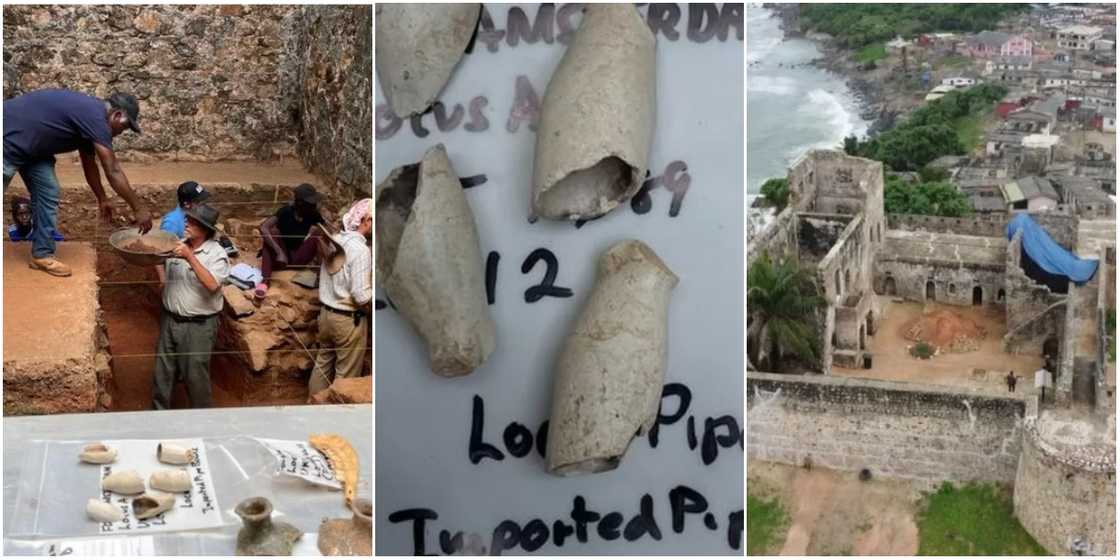'First English Slave Fort In Africa' Discovered On Ghana's Coast
- Ghana has become the spotlight of the world again after the news that the slavery story on the African continent started in Ghana
- This is after the discovery by an archaeologist, Prof. Christopher DeCorse, and his team of an older fort
- The slave fort is burried under the remains of Fort Amsterdam at Abandze in the Central Region
PAY ATTENTION: Be the first to follow YEN.com.gh on Threads! Click here!
An archaeologist, Prof Christopher DeCorse, and his team have uncovered the exact location of what is believed to be the first English slave fort in Africa.
The said slave fort is buried under the ruins of Fort Amsterdam in the Central Region. This implies that the slave trade story on the African continent started in Ghana.
The professor from Syracuse University in the United States of America led and directed the team as they carefully got the remains of an older fort, Kormantine.

Source: Facebook
According to the BBC, the team has so far discovered laying out a gunflint (used in old-fashioned guns), tobacco pipes, broken pottery, and the jawbone of a goat.
PAY ATTENTION: Сheck out news that is picked exactly for YOU ➡️ click on “Recommended for you” and enjoy!
According to Prof. Christopher DeCorse, he was excited to discover this. He added that the discovery would elaborate further on the lives of the early traders and what they were doing, the slave trade, and the effect on the community around them.
Reports suggest that the slave trade started in this location (Fort Kormantine) in 1663 after King Charles II signed a charter to the Company of Royal Adventurers of England Trading into Africa (later the Royal African Company). The King at the time gave the company exclusive rights over the trade of human beings.

Read also
"Abena call me later": Lady who messed up King Promise's song gets teased by friends on campus, her reaction excites many
The fort was seized by the Dutch two years later. it, however, does not downplay the role of Fort Kormantine in the initial stages of the slave trade.
Woman from Cape Verde deleted her tweet after Ghanaians mocked her
Earlier, YEN.com.gh reported that Cape Verde singer/songwriter Lisa Lopes deleted her tweet because of her caption, which got many Ghanaians on social media talking.
Lopes innocently captioned her photo with the words "Mi ta bon," written in Papiamento, her native language which means "I'm fine".
She did not know that "Mi ta bon" also means "My fart smells" in Twi. This hilarious translation got several Ghanaians laughing online.
African-American ladies shake their derriere at Cape Coast Castle
Meanwhile, a group of African-American women who visited the Cape Coast Castle got netizens talking.
In video footage, the four beautiful ladies were twerking but no music was being played in the background.
One of them was in an orange dress and said the twerking was for the ancestors.
New feature: Сheck out news that is picked for YOU ➡️ click on “Recommended for you” and enjoy!
Source: YEN.com.gh


